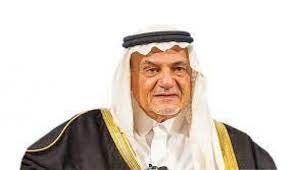
Former Saudi intelligence chief and prince, Turki Al Faisal, delivered a thought-provoking speech at Rice University in Houston, where he addressed the Israel-Hamas conflict, condemning both sides and advocating for civil disobedience as an alternative to military action.
During his speech, Prince Turki Al Faisal emphasized that there are “no heroes in this conflict, only victims.” His remarks shed light on the complexities of the Israel-Hamas conflict and received widespread attention on social media.
Prince Turki Al Faisal drew parallels to India’s struggle for independence, highlighting the effectiveness of civil insurrection and disobedience in bringing about significant change. He expressed a preference for this non-violent approach, stating, “I do not support the military option in Palestine. I prefer the other option: civil insurrection and disobedience. It brought down the British empire in India and the Soviet empire in eastern Europe.”
The prince’s frank and unconventional stance on the conflict stands as a clear indicator of Saudi Arabia’s leadership’s perspective on the situation. He acknowledged the right of occupied people to resist their occupation, even though he expressed his disapproval of military methods.
In his speech, Prince Turki Al Faisal criticized both Hamas and Israel. He pointed out that Hamas’ actions ran contrary to Islamic injunctions by harming civilians. He also accused Israel of indiscriminately bombing innocent Palestinian civilians in Gaza and conducting the indiscriminate arrest of Palestinian children, women, and men in the West Bank.
Furthermore, the prince questioned the terminology used by U.S. media, taking issue with the phrase “unprovoked attack.” He asserted, “What more provocation is required than what Israel has done to the Palestinian people for three-quarters of a century?”
Prince Turki Al Faisal concluded his speech by condemning Western politicians for what he perceived as a bias in their response to the conflict. He criticized the discrepancy in their reactions, noting that they “shed tears when Israelis are killed by Palestinians” but refrain from expressing sorrow when Palestinians are killed by Israelis.
His address at Rice University provides valuable insight into the multifaceted perspectives on the Israel-Hamas conflict and the potential for non-violent methods to bring about change in the region.
Sources By Agencies


